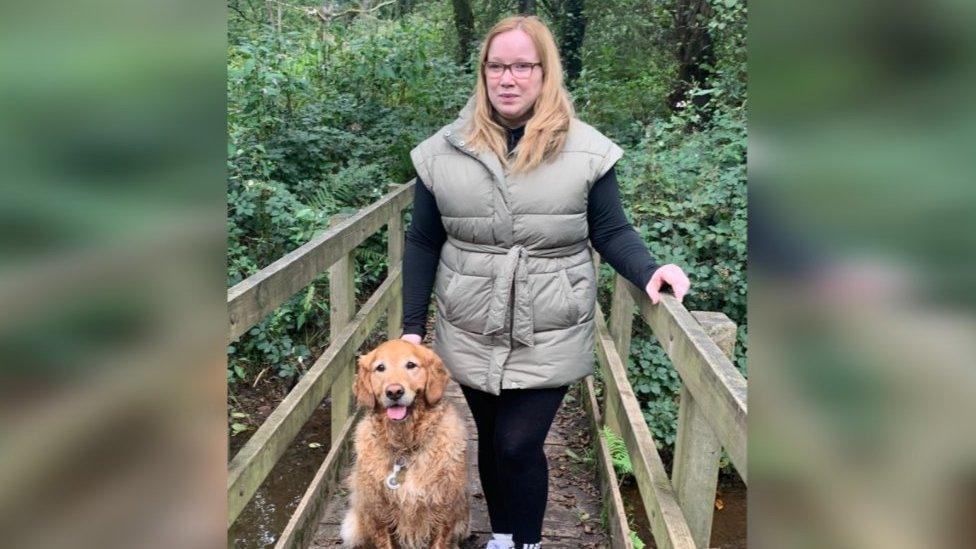Blind woman with ill baby denied access to London hospital
- Published
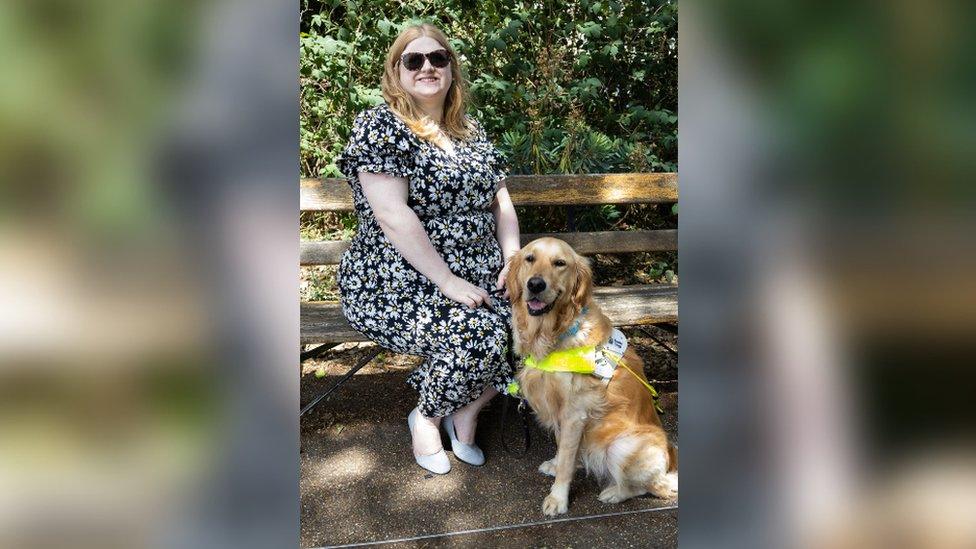
Dr Amy Kavanagh said the incident was "distressing" and "unacceptable"
A woman says she was refused access to a west London hospital when she tried to take her poorly baby inside for treatment, because she had a guide dog.
Historian and activist Dr Amy Kavanagh, 34, who is blind, was visiting West Middlesex University Hospital.
On arrival, however, she says a security guard "kept shouting 'no dogs' at me and my partner" and patients and staff had to intervene.
The NHS trust says it is "taking this incident seriously".
When the guard at the Isleworth hospital's urgent care department tried to refuse them access, Dr Kavanagh said she and her partner "firmly replied that Ava is a guide dog and legally allowed access", before they walked past him and headed to reception.
"Luckily, other members of the public supported us and shouted down the security guard, repeating that Ava is a guide dog and allowed in a hospital," she added.
"We immediately informed the nurse at reception who was also very supportive and went to talk to the security guard."
'It is unacceptable'
Dr Kavanagh, who posted on X about her experience, said her baby had a viral infection and "will recover with plenty of cuddles and a bit of Calpol", but said it was not the first time she had been refused access with her guide dog Ava.
"A late-night visit to hospital with a poorly baby is worrying enough, but being told I couldn't enter because I'm blind and a guide dog-handler was very distressing," she said.
"It is unacceptable for the NHS to repeatedly fail guide dog-handlers like myself by employing security staff without the appropriate training to understand the role and access rights of assistance dogs.
"As a blind woman it is frightening and intimidating to be shouted at, physically blocked from entering a building or followed into a building by security staff.
"Disabled people should not have to feel anxiety about experiencing physically intimidating behaviour when trying to attend medical appointments or seeking healthcare."
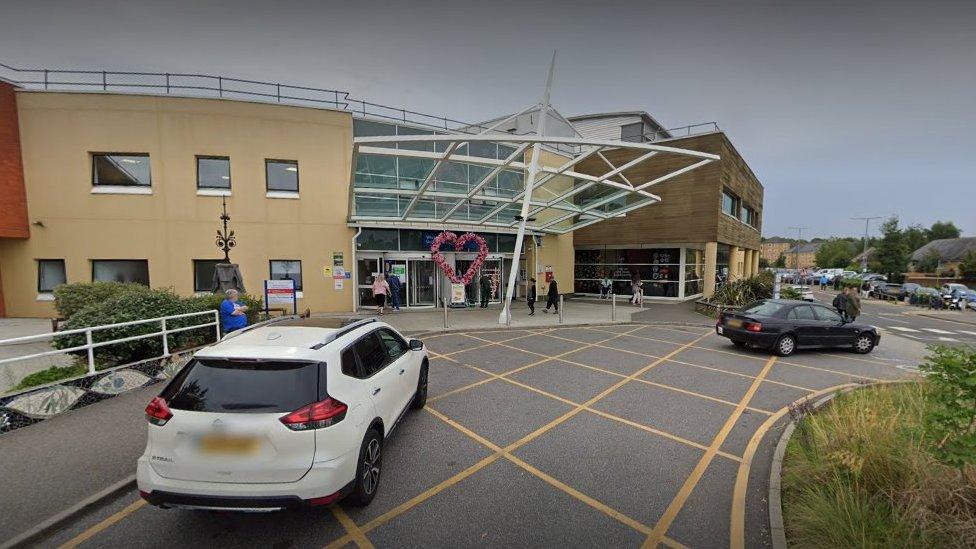
Dr Kavanagh says the kind of experience she had can have "a serious impact on the health and wellbeing of blind individuals"
Dr Kavanagh added that it should not matter whether security staff were employed directly or by third-party contractors, because the NHS "must ensure that no guide dog-handler is at risk of being turned away from medical care because of a lack of training and awareness".
"This could have a serious impact on the health and wellbeing of blind individuals trying to access NHS services," she continued.
A Guide Dogs spokesperson said: "Too many guide dog-owners continue to face discrimination and are turned away because they have their guide dog with them.
"Our research shows that 81% of guide dog-owners have been refused access to a business or service at some point, and around half said they changed or restricted their plans because they were concerned they would be refused access because of their guide dog."
A spokesperson for Chelsea and Westminster Hospital NHS Foundation Trust said: "We are taking this incident seriously, our organisation is fully committed to providing accessible services for everyone in our community, in a safe and welcoming environment."
The spokesperson added the trust had reached out to the woman "to offer our sincere apologies and importantly, to ensure that appropriate action will take place following an immediate internal review".

Listen to the best of BBC Radio London on Sounds and follow BBC London on Facebook, external, X, external and Instagram, external. Send your story ideas to hello.bbclondon@bbc.co.uk, external
- Published24 March 2023
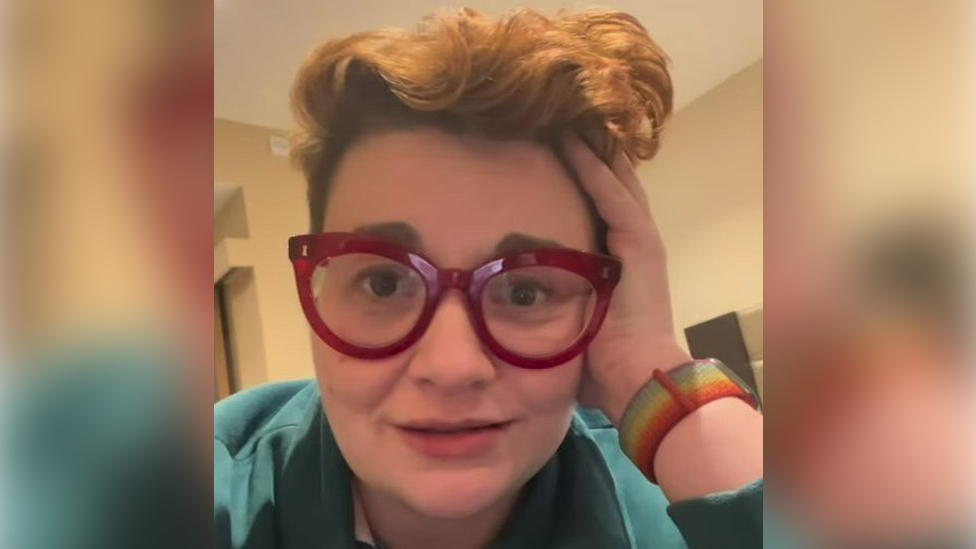
- Published24 February 2023
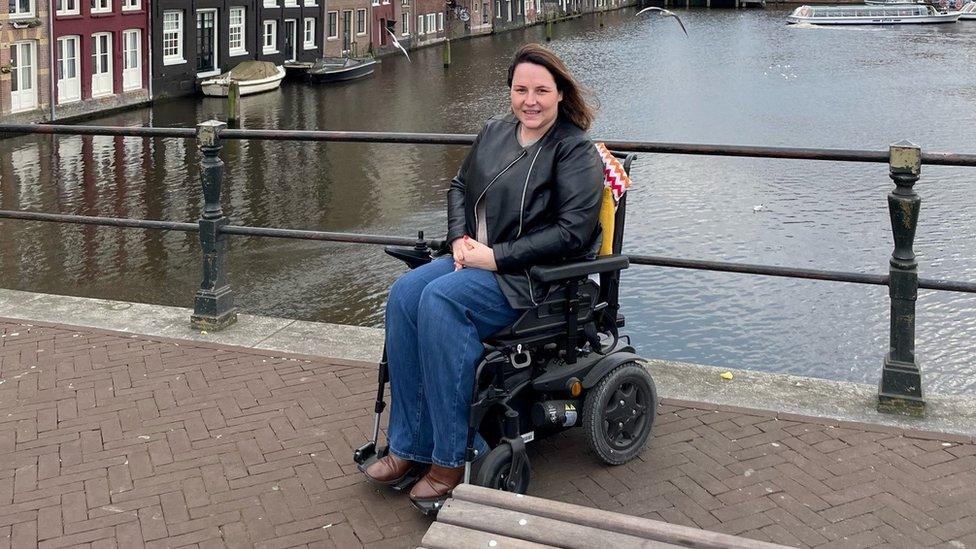
- Published10 November 2022
